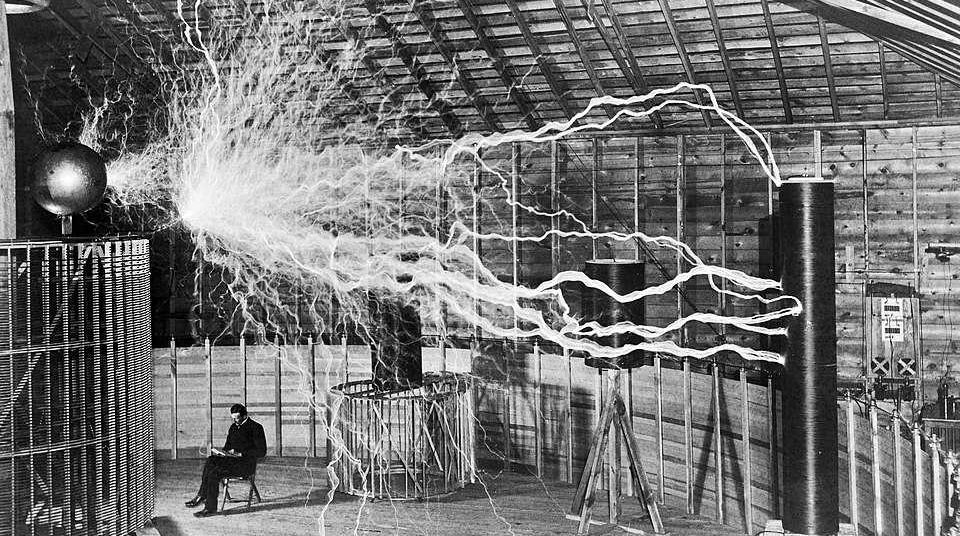Mom is baffled why her Millennial and Gen Z kids refuse to watch TV without subtitles
Are subtitles helpful or annoying? It's a generational thing.

Have you ever had trouble catching all of the dialogue in a TV show or movie at home? Not necessarily because you're hard of hearing, but because you were distracted, the speakers on your television are terrible, the sound mixing is all over the place, or the characters were just talking really fast? If so, you should definitely take a cue from the younger generations.
If you’re a Gen Xer or older, one surprising habit the younger generations developed is their love of subtitles or closed-captioning while watching TV, during which every word of dialogue appears in crystal clear white text at the bottom of the screen. To older generations, closed-captioning was only for grandparents, the hearing impaired, or when watching the news in a restaurant or gym.
But these days, studies show that Millenials and Gen Z are big fans of captions and regularly turn them on when watching their favorite streaming platforms.
A recent study found that more than half of Gen Z and Millenials prefer captions on when watching television. It’s believed that their preference for subtitles stems from the ubiquity of captioning on social media sites such as TikTok or Instagram. Think about it, most of us watch videos on their phone without the sound, so younger people in particular are used to and adept at following along this way without missing a beat. It's comfortable for them.
This generational change perplexed TikTokker, teacher and Gen X mother, Kelly Gibson.
@gibsonishere Always leaning! #genx #millennial #caption #learning
"I have three daughters, and they were here. Two of them are young millennials; the other one is an older Gen Z," Gibson explained in a video with over 400,000 views. "All of them were like, 'Why don't you have the captions on?'”
The mother couldn’t believe that her young kids preferred to watch TV like her grandparents. It just did not compute.
"My Gen X butt was shocked to find out that these young people have decided it's absolutely OK to watch movies with the captions going the whole time," she said jokingly.
But like a good mother, Gibson asked her girls why they preferred to watch TV with captioning, and their reason was straightforward: With subtitles, it’s easier not to lose track of the dialog if people in the room start talking.

"They get more out of it," Gibson explained. "If somebody talks to them in the middle of the show, they can still read and get what's going on even if they can't hear clearly. Why are young people so much smarter than us?"
At the end of the video, Gibson asked her followers whether they watch TV with subtitles on or off. "How many of you out there that are Millennials actually do this? And how many of you Gen Xers are so excited that this is potentially an option?" she asked.
Gibson received over 400 thousand views on her video, along with over 8,400 responses to her question. People have a lot of different reasons for preferring to watch TV with captions.

“Millennial here. I have ADHD along with the occasional audio processing issues. I love captions. Also, sometimes I like crunchy movie snacks,” Jessileemorgan wrote.
“We use the captions because I (GenX) hate the inability of the movie makers to keep sound consistent. Ex: explosions too loud conversation to quiet,” Lara Lytle added.
“My kids do this and since we can’t figure out how to turn it off when they leave, it’s become a staple. GenX here!” Kelly Piller wrote.
One user made an astute point: "GenX here. Hubby and I do this! Especially watching British shows…sometimes my American ear doesn’t hear Scottish or Welsh accents well!"
The interesting takeaway from the debate is that anti-caption people often believe that having writing on the screen distracts them from the movie. They’re too busy reading the bottom of the screen to feel the film's emotional impact or enjoy the acting and cinematography.
"Gen X here. I hate the captions. I find I don’t watch the actual scene, I’m just reading the captions," one user commented.
However, those who are pro-caption say that it makes the film easier to understand and helps them stay involved with the film when there are distractions.
Here's another drawback, or con: The captions often screw up the timing of jokes and punchlines in comedies, which is a huge bummer. Watching a sitcom with the captions on, for example, can be a frustrating experience.
But here's a pro! It's way easier to follow convoluted plot points layered into fast paced dialogue when you can read it and never miss a name or reference.
Another pro: Turning on subtitles for young kids has been shown to help them to read!
Con: Even in 2025, live TV closed captioning is still an absolute disaster on many programs, full of errors and inaccuracies. Surprisingly, AI captions are currently considered less reliable than humans, but you have to wonder for how long.
So are captions and subtitles superior, or a pain? Who's right? Whoever's holding the remote, that's who.
This article originally appeared last year. It has been updated.



 A UPS truck with package deliveries.Image via Wikipedia
A UPS truck with package deliveries.Image via Wikipedia
 A man at a grocery store in the produce aisle.
A man at a grocery store in the produce aisle. A close-up of hands prepping baking ingredients.
A close-up of hands prepping baking ingredients.  A warehouse full of stacked boxes.
A warehouse full of stacked boxes.  A yellow shirt with a stain, lemon, and baking powder
A yellow shirt with a stain, lemon, and baking powder

 Nikola Tesla with his equipment. via
Nikola Tesla with his equipment. via 